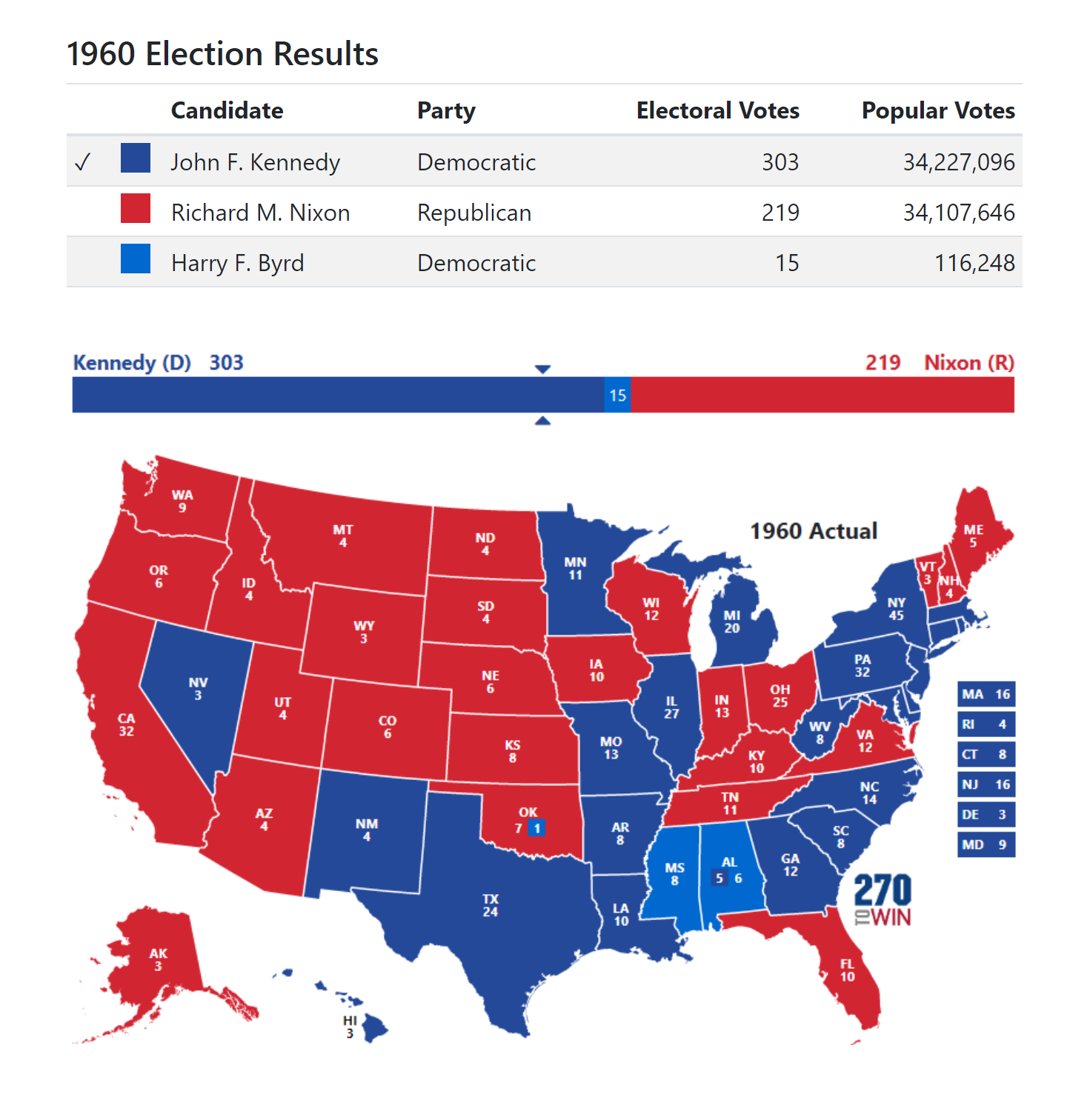
John F. Kennedy was elected as the 35th President of the United States. However, many Republicans objected to this outcome. They cited voting irregularity in Texas, where Kennedy won by 46,000 votes, and Illinois, by 9,000 votes. If Nixon had won those 2 states, he would have won by 2 votes in the Electoral College. Although Nixon later conceded on November 9th, 1960, his supporters persisted. They called Nixon to contest the results. There were rampant rumors that Mayor Richard Daley of Chicago used his political machine to stuff ballot boxes in Cook County, a common practice of Chicago mayors back in the day.
On November 9th, 1960, Nixon officially conceded. He told Earl Mazo, his friend, and journalist, that "our country cannot afford the agony of a constituional crisis." Despite Nixon's requests, the Republican Party still decided to continue contesting the results. Republicans officials pursued recounts and investigations in 11 states. In the end, Nixon ended up losing Hawaii to Kennedy after the recount.
In later years in an autobiography, Nixon claimed that widespread fraud happened in Illinois and Texas. The disputes about the 1960 election continue to this day, though the discrepancies aren't enough to reverse the outcome. John F. Kennedy continues to be the 35th President of the United States. Ironically, Kennedy's assassinator is disputed as well, after Kennedy was assassinated while riding in a motorcade in Dallas, Texas, on Friday, November 22, 1963, at 12:30 p.m.
